Related Research Articles

A school meal is a meal provided to students and sometimes teachers at a school, typically in the middle or beginning of the school day. Countries around the world offer various kinds of school meal programs, and altogether, these are among the world's largest social safety nets. An estimated 380 million school children around the world receive meals at their respective schools. The extent of school feeding coverage varies from country to country, and as of 2020, the aggregate coverage rate worldwide is estimated to be 27%.

Gleneagle Secondary School, or simply Gleneagle, is a public coeducational high school located in Coquitlam, British Columbia, established in 1997. It is run by School District 43 Coquitlam. Gleneagle serves grades 9-12 and has an enrolment of about 1500 students. In addition to academic programs, Gleneagle offers specialty programs such as ACE-IT Culinary Arts and Hairdressing, the COAST outdoor education program, the grade 9 JumpstART art program, and the school district's TALONS gifted program.
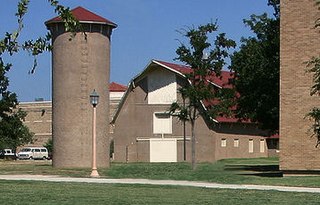
Agricultural education is the systematic and organized teaching, instruction and training available to students, farmers or individuals interested in the science, business and technology of agriculture as well as the management of land, environment and natural resources.

John Oliver Secondary School is a public secondary school located in Vancouver, British Columbia, Canada, at East 41st Avenue and Fraser Street. It is named after John Oliver, the Premier of British Columbia from 1918 to 1927. The school is composed of four main segments: the main building containing the bulk of the learning areas, including the Auditorium and Learning Commons; a wooden building affectionately nicknamed "The Barn", due to its appearance, which is closed but was previously used by the mini school and Digital Immersion students; a Drama Studio which allows for several theatre and acting courses; and a concrete building — the engineering building — bisected by a breezeway, with automotive, metal, and wood shops.
McBride Secondary is a public high school in McBride, part of School District 57 Prince George.
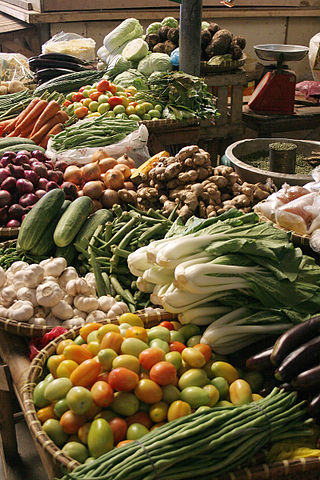
Vegetables are parts of plants that are consumed by humans or other animals as food. The original meaning is still commonly used and is applied to plants collectively to refer to all edible plant matter, including the flowers, fruits, stems, leaves, roots, and seeds. An alternative definition of the term is applied somewhat arbitrarily, often by culinary and cultural tradition. It may exclude foods derived from some plants that are fruits, flowers, nuts, and cereal grains, but include savoury fruits such as tomatoes and courgettes, flowers such as broccoli, and seeds such as pulses.
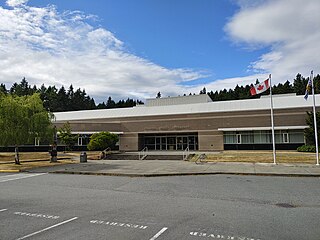
Frances Kelsey Secondary School (FKSS) is a high school located in Mill Bay, British Columbia, Canada, named after Dr. Frances Oldham Kelsey. The school, under founding Principal Allan MacLeod, adopted a self-directed learning system. FKSS is one of School District 79 Cowichan Valley's four mainstream secondary schools.
The University of British Columbia Okanagan is a campus of the University of British Columbia in Kelowna, British Columbia, Canada.
The College of Food, Agricultural and Natural Resource Sciences (CFANS) is one of seventeen colleges and professional schools at the University of Minnesota. The College offers 14 majors, 3 pre-major and pre-professional majors and 26 freestanding minors for undergraduate students and a variety of graduate study options that include master's, doctoral and joint degree programs.

Agriculture in the Classroom (AITC) is a grassroots program coordinated by the United States Department of Agriculture (USDA) and the National Agriculture in the Classroom Organization. Its goal is to help students gain greater awareness of the role of agriculture in the economy and society, so that they may become citizens who support wise agricultural policies. AITC raises agricultural literacy by helping students understand the farm sources of their food, fabric and flowers.
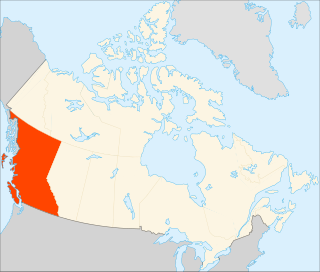
Higher education in British Columbia is delivered by 25 publicly funded institutions that are composed of eleven universities, eleven colleges, and three institutes. This is in addition to three private universities, five private colleges, and six theological colleges. There are also an extensive number of private career institutes and colleges. Over 297,000 students were enrolled in post-secondary institutions in British Columbia in the 2019-2020 academic year.

The Transition Program for Gifted Students, often called the University Transition Program (UTP), is an accelerated secondary school program for gifted students funded by the BC Ministry of Education's Provincial Resource Program with hosting, educational support and financial assistance from the University of British Columbia (UBC), and administered by the Vancouver School Board in Vancouver, British Columbia, Canada. Each year, the program accepts around 20 new students between the ages 12 and 15, half of which are from outside the Vancouver School Board. Over the course of two years, students complete required five year high school curriculum along with some university coursework. When they graduate from the program, the students are usually accepted into UBC earlier than they would if they had graduated from a regular high school.
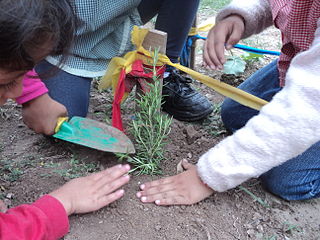
Garden-based learning (GBL) encompasses programs, activities and projects in which the garden is the foundation for integrated learning, in and across disciplines, through active, engaging, real-world experiences that have personal meaning for children, youth, adults and communities in an informal outside learning setting. Garden-based learning is an instructional strategy that utilizes the garden as a teaching tool.

Musical Futures is a not-for-profit music education program, pedagogy and resource platform built for teachers, children and youths. It was started in the United Kingdom in 2003 by the Paul Hamlyn Foundation and is now an internationally recognised enterprise.
Dairy Council of California provides free nutrition education programs to California children and adults through teachers and health professionals. In addition, the Dairy Council of California provides a Mobile Dairy Classroom, a free outdoor assembly with a live cow. The organization also provides consumers with nutrition information through a website, HealthyEating.org.

Let's Move! was a public health campaign in the United States led by former First Lady Michelle Obama. The campaign aimed to reduce childhood obesity and encourage a healthy lifestyle in children.
North American collegiate sustainability programs are institutions of higher education in the United States, Mexico, and Canada that have majors and/or minors dedicated to the subject of sustainability. Sustainability as a major and minor is spreading to more and more colleges as the need for humanity to adopt a more sustainable lifestyle becomes increasingly apparent with the onset of global warming. The majors and minors listed here cover a wide array of sustainability aspects from business to construction to agriculture to simply the study of sustainability itself.

Monégasque cuisine is the cuisine of the principality of Monaco. It is a Mediterranean cuisine shaped by the cooking style of Provence and the influences of nearby northern Italian and southern French cooking, in addition to Monaco’s own culinary traditions. There is an emphasis on fresh ingredients, with the use of seafood, vegetables and olive oil playing a major role in the cuisine.
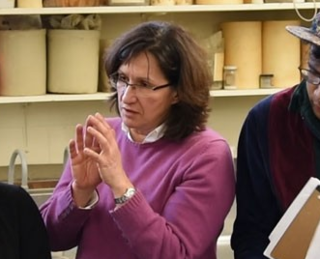
Maja Krzic is a soil scientist and an associate professor in the Department of Forest & Conservation Sciences in the Faculty of Forestry with a joint appointment in the Applied Biology and Soil Sciences programs in the Faculty of Land and Food Systems at the University of British Columbia. She is a founder of the Virtual Soil Science Learning Resources Group, a collaborative teaching effort among scientists, students, and multimedia experts from seven universities and three research institutions in Canada that create open access soil science educational resources. She is also the president of the Canadian Society of Soil Science and was named a 3M National Teaching Fellow in 2016.

A school garden is an area designated for students to learn how to cultivate flowers and vegetable gardens in their school. They are commonly established to improve students' health, social development, and academic achievement.
References
- ↑ BCAITC Resources http://www.aitc.ca/bc/index.php?page=resources
- ↑ Metro Vancouver http://www.metrovancouver.org/region/teachers/Pages/AgricultureFood4Thought.aspx Archived 2011-02-27 at the Wayback Machine
- ↑ BCAITC Programs http://www.aitc.ca/bc/index.php?page=programs
- ↑ Vancouver Sun https://vancouversun.com/business/Students+serve+tasty+Bite/4463235/story.html
- ↑ BC Government http://www2.news.gov.bc.ca/news_releases_2009-2013/2011PREM0051-000552.htm Archived 2011-05-26 at the Wayback Machine
- ↑ UBC http://www.eplt.educ.ubc.ca/courses/home-economics-education-summer-institutes-2011